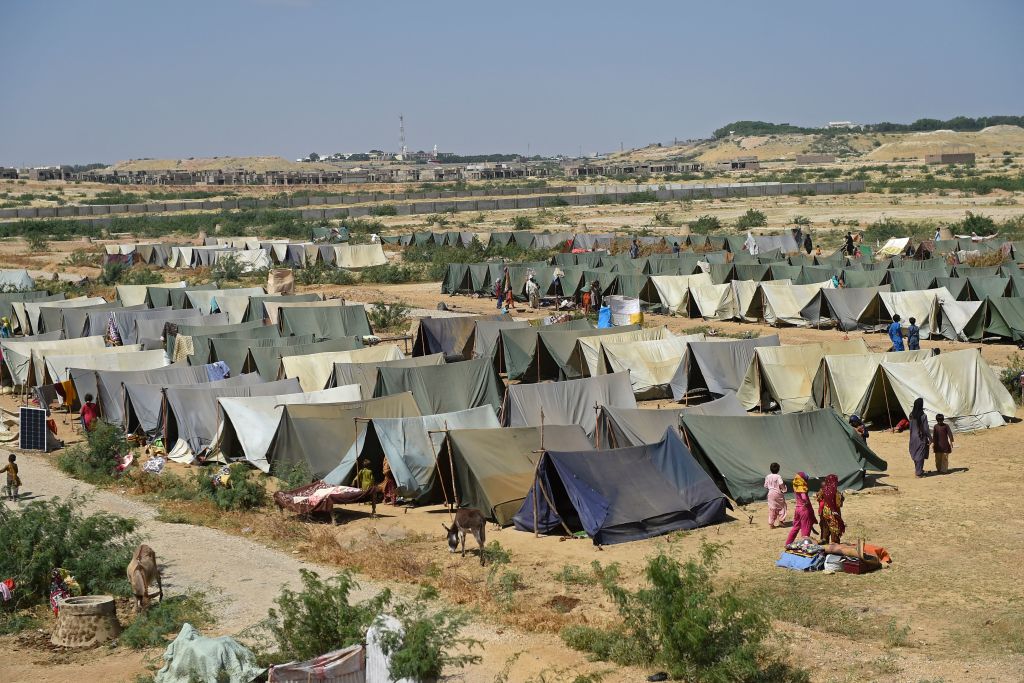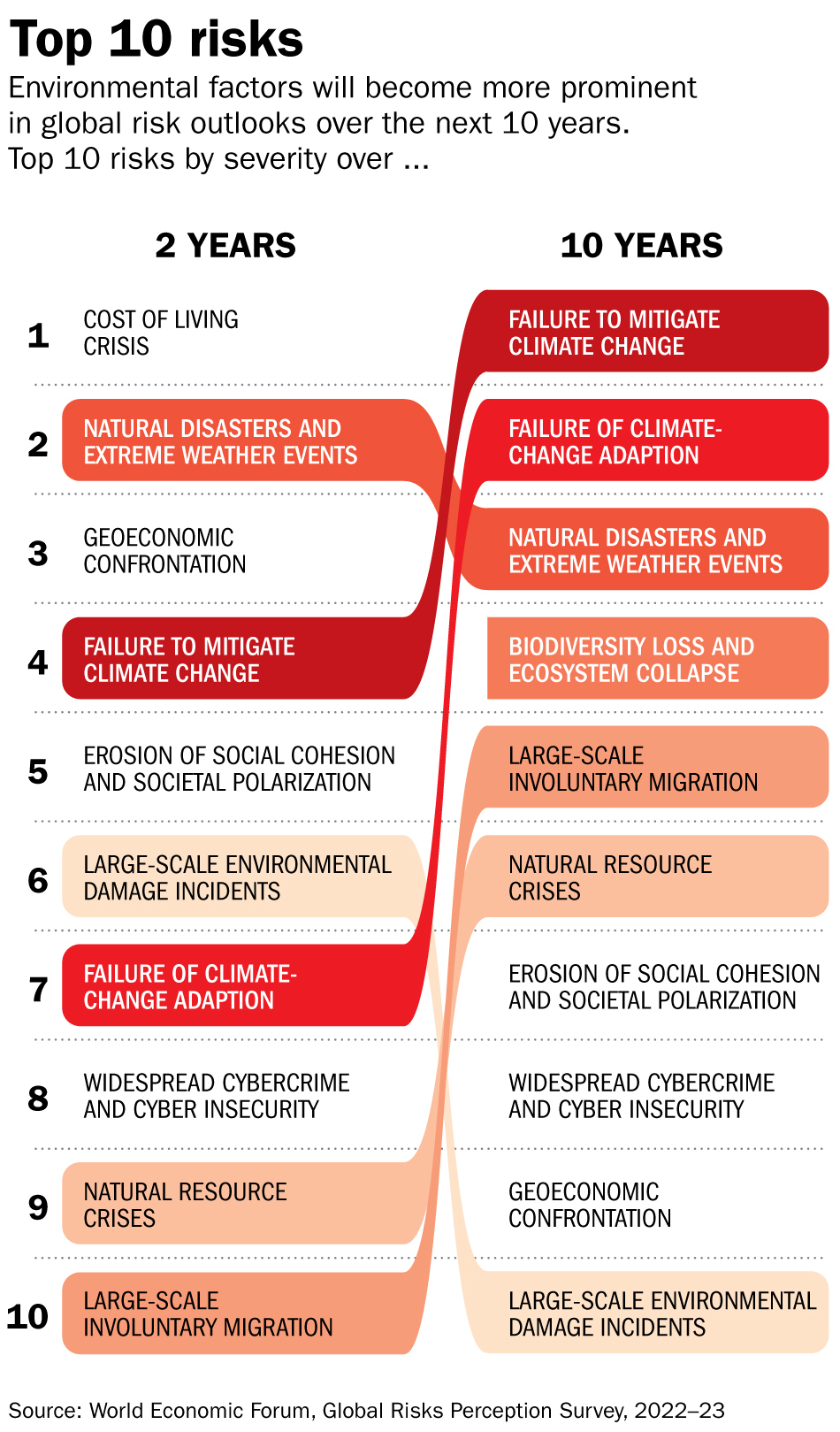
Every year the World Economic Forum (WEF) surveys more than 1,200 global risk experts, policy makers, and industry leaders to measure the weight of looming risks to global finance and stability over the next two and ten years. The WEF releases its Global Risks Report as world leaders and corporate titans convene in Davos for the annual conference to help frame the week’s conversations. While energy and food supply chains top today’s concerns, largely triggered by the pandemic’s lingering effects and conflict in Ukraine, the future fears of the global elite are finally intersecting with those of climate scientists.
Natural disasters and extreme weather events, along with a failure to mitigate climate change, made it into the top five risks for the next two years. Meanwhile, the top six concerns over the next decade involve a climate angle, assuming that number six—large scale involuntary migration—is considered (as it should be) a result of climate change as well as conflict, or indeed conflict caused by climate change.

Take the shrinking Lake Chad basin, which straddles the African nations of Cameroon, Chad, Niger, and Nigeria, as an example. The United Nations warned last year that the region, which covers 8% of the African continent and is home to 42 million people, “is particularly vulnerable to climate change related extreme events such as floods and droughts… with impacts on food security and general security in the region.” A new report released by the international human rights group Refugees International warns that climate change is accelerating conflict and migration in the region and needs to be better addressed before it risks destabilizing a wider area, with unknown repercussions for the economies of West Africa.
The WEF’s poll respondents were probably not thinking about a shrinking Lake Chad when they fretted about the impacts of large scale involuntary migration, but such a movement could easily lead to risk concern number seven: erosion of social cohesion and societal polarization, also likely to be triggered by the impacts of climate change. Mitigating those future risks, whether in the Lake Chad Basin or even closer to home, requires action in the present. The question now is how to manage short term risk, like energy insecurity, without exacerbating the long term risks of climate change.
A version of this story first appeared in the Climate is Everything newsletter. To sign up, click here.
More Must-Reads from TIME
- Cybersecurity Experts Are Sounding the Alarm on DOGE
- Meet the 2025 Women of the Year
- The Harsh Truth About Disability Inclusion
- Why Do More Young Adults Have Cancer?
- Colman Domingo Leads With Radical Love
- How to Get Better at Doing Things Alone
- Michelle Zauner Stares Down the Darkness
Contact us at letters@time.com